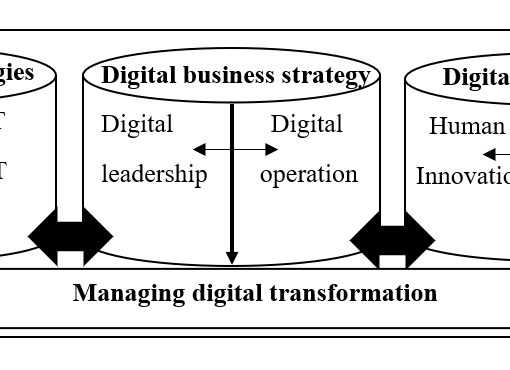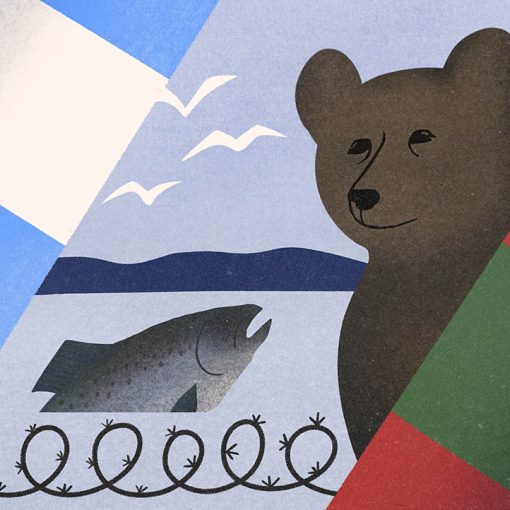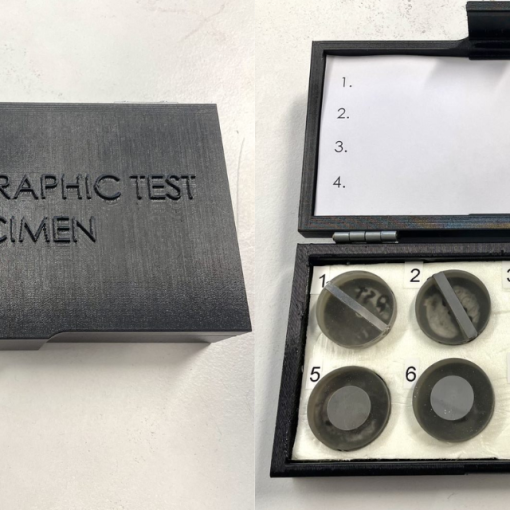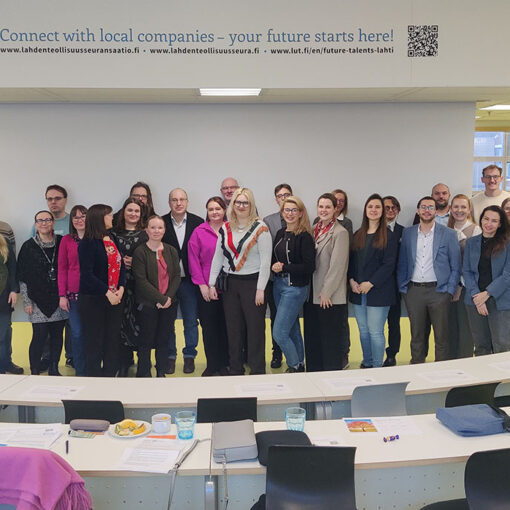Knowledge sharing practices are an important part of team learning methods (see Ekman 2024a; Ekman 2024b), which is applied in the SmartVille project (LAB 2025; SmartVille 2025). Project team members discussed knowledge sharing practices in the focus group discussions in the Namibian living lab communities (Mix settlement and Nauuasport communities). Originally, knowledge creation model (SECI-model) was presented by Nonaka & Takeuchi (1995):
![[Alt text: a spiral combining four areas, which are socialization, externalization, internalization and combination.]](https://blogit.lab.fi/labfocus/wp-content/uploads/sites/8/2025/02/69_2025_EKA-KUVA-1024x606.jpg)
SECI-model shows how knowledge is being created. Knowledge can be divided into explicit and tacit knowledge. Explicit knowledge is general, easy to transfer, is not context dependent. and it can be numerical or verbal. However, according to Nonaka & Takeuchi (1995), most of the knowledge is tacit, which refers to that it is personal, context-dependent and difficult to express or share. Moreover, it can be shared in face-to-face interactions.
According to Nonaka & Takeuchi (1995), new knowledge is being created in the interaction between tacit and explicit knowledge. In the externalization, knowledge is being transformed from tacit to explicit. This means expressing the silent knowledge in a way that others can understand and share it. (Nonaka & Takeuchi, 1995). In socialization, tacit knowledge is being transferred and shared through socialization with others. For example, in the SmartVille project, Zambian partners shared that their ancestors had told them that the upcoming rainy season can be predicted based on how the mango trees look months ahead (before the rainy season starts). Rainy season is very important for the Zambian and Namibian agriculture and during the recent years, these countries have suffered from drought (see the report by IFRC, 2024).
Knowledge sharing in the Mix Settlement and Nauuasport communities in Namibia
Knowledge sharing practices were discussed in the focus group discussions which SmartVille partners conducted in the Namibian living lab communities. Knowledge sharing is important since those who are not fluent in English language, have difficulties studying courses in a different language. In other words, those students who are fluent in English could also disseminate and share the knowledge to those community members who are unable to access to the project courses due to language barriers. However, in the focus group discussions, it was highlighted that sharing knowledge with competitors may be a challenge, especially if they are in the same type of business.
Currently, general knowledge sharing in Mix Settlement community occurs mainly through telephones and WhatsApp but mainly on issues that do not cause competition among community members. An example of taxi pooling was given, to determine whether they can designate only one person to go to town to do shopping for the entire community and cut costs. However, following challenges emerged; (1) the community do not sell or replenish their stock at the same time, making this option impractical, (2) the cars were too small, and they would not be able to carry inventory belonging to the different individuals. (3) lack of trust among villagers.
![[Alt text: people gathered in savanni.]](https://blogit.lab.fi/labfocus/wp-content/uploads/sites/8/2025/02/69_2025_Knowledge-sharing-practices_2-1024x612.jpg)
Similar focus group discussions were also held in Nauuasport in Namibia, which showed that many community members lack access to smartphones or cannot afford data bundles to engage with such digital tools. Some are unfamiliar with using smartphones or other modern devices, further limiting their ability to participate in digital learning. Community members highlighted they had best practices on farming, so the community does not only rely on traditional knowledge. Trust issue was also raised as not all members of the communities have equally benefitted from the training opportunities received earlier. In sum, increasing trust among community members is critical so that the community members are willing to share their knowledge, which can eventually lead to realization and/or exploitation of entrepreneurial opportunities in the markets, which would likely to benefit the whole community. For example, collaborating together (e.g. in a form of cooperative), small-scale entrepreneurs could achieve more efficiency and negotiation power in the market than working as solo entrepreneurs.
Authors
Terhi Saarijärvi, D.Sc. (Econ. & Bus. Adm) is co-leading entrepreneurial learning contents work package with Kauna Mufeti in the SmartVille project. She works as a RDI expert and a lecturer also in the VALIOT project at LAB University of Applied Sciences, Lappeenranta, Finland.
Kauna Mufeti, D.Sc. (Information Systems) is leading the entrepreneurial learning contents work package with Terhi Saarijärvi in the SmartVille project. She works as an Associate Professor in the Faculty of Agriculture, Engineering and Natural Sciences in University of Namibia, Windhoek, Namibia.

References
Ekman, M. 2024a. Team learning: a method to tackle high unemployment rate in the rural parts of Namibia and Zambia? LAB Focus. Cited 11 Feb 2025. Available at https://blogit.lab.fi/labfocus/en/team-learning-a-method-to-tackle-high-unemployment-rate-in-the-rural-parts-of-namibia-and-zambia/
Ekman, M. 2024b. SmartVille project: how to succeed in the implementation of team learning method? LAB Focus. Cited 12 Jan 2025. Available at https://blogit.lab.fi/labfocus/en/smartville-project-how-to-succeed-in-the-implementation-of-team-learning-method/
International Federation of Red Cross (IFRC) -websites. Cited 12 Feb 2025. Available at Namibia: Drought | IFRC
LAB. 2024. Yhteisöllisiä yrittäjyyskasvatusmenetelmiä Sambiaan. Project. LAB University of Applied Sciences. Cited 12 Feb 2025. Available at https://lab.fi/fi/projekti/yhteisollisia-yrittajyyskasvatuksen-menetelmia-sambiaan-communal-entrepreneurship
LAB. 2025. Developing Sustainable and Entrepreneurial Villages Through Educational Living Labs in Namibia and Zambia. Project websites. LAB University of Applied Sciences. Cited 12 Feb 2025. Available at Developing Sustainable and Entrepreneurial Villages through Educational Living Labs in Namibia and Zambia | LAB.fi
Nonaka, I. & Takeuchi, H. 1995. The Knowledge-Creating Company: How Japanese Companies Create the Dynamics of Innovation. Oxford: Oxford University Press.
SmartVille. 2025. Project website. Cited 11 February 2025. Available at https://www.smartvillelivinglabs.com/index.php




